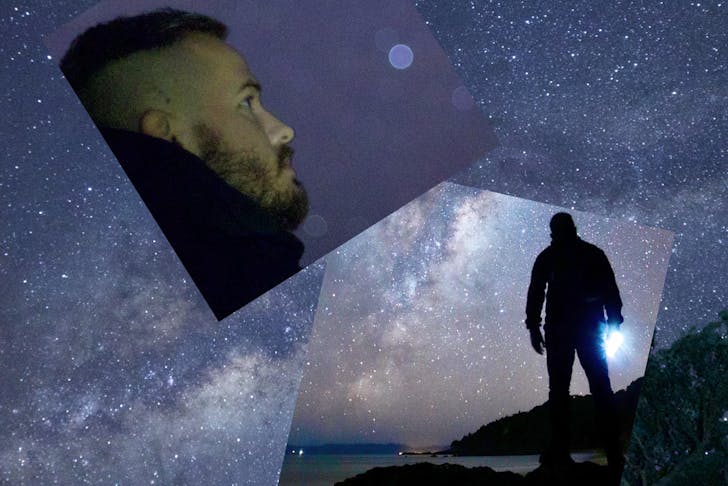Josh Aoraki (Ngāi Tahu) is Urban List’s guest editor. He is an astrophotographer and astronomer who is based in Tāmaki Makaurau and hails from Kāi Tahu in the deep south. Josh has been working at the astronomical observatory The Stardome since the age of 22, teaching tens of thousands across the country about both Western and Māori astronomy.
Aotearoa/New Zealand marked the first official celebration and public holiday of Matariki in 2022, thanks to the incredible work and dedication of people like Professor Rangi Mātāmua and countless others. It was a significant moment for our country and something that I was hugely proud to see happen.
Matariki is an astronomical marker of time for Māori and holds great importance here in Aotearoa. These stars have been used for thousands of years throughout the Pacific; virtually all cultures around the world have a story or connection to these stars. For me, Matariki represents a time of celebration, reflection, and connection to people and land across New Zealand.
Matariki, known to the Western world as the Pleiades, is a star cluster that reappears in our pre-dawn sky in June during winter in the Southern Hemisphere. It marks the beginning of the Te Tau Hou Māori or the Maori New Year.
It has been celebrated by our ancestors for centuries and is part of a wider stellar-lunar time-keeping system. This system of time was used throughout Polynesia pre-colonisation, but much of it was almost lost due to the suppression and overwriting of mātauranga Māori. However, we have seen a revitalisation of this knowledge in recent years.
I’ve been an astronomer for over seven years, and the stars and night sky have always held a special place in my heart. I began working at the Auckland Stardome Observatory in 2016, and that was actually the first time I ever heard the word Matariki. We all grew up learning a few common star names or constellations. Orion’s Belt, the North Star, Scorpius, or the Southern Cross to name a few.
Looking back on it, it’s funny that we all were taught about stars and constellations that have no relevance to us in Aotearoa, let alone the entire Southern Hemisphere. I vividly remember growing up and not once hearing about Matariki or what it was and have found that many people share that experience.
As it turns out, virtually all things we celebrate here are imported holidays from the Northern Hemisphere: Easter, King’s Birthday, Guy Fawkes, and Christmas. None of them has any real connection to Aotearoa. Matariki is different. It’s not just a public holiday or a day off (although I do love a day off). It’s a celebration that is for all of us from Aotearoa and grounded in scientific and astronomical understandings of our southern skies.
In my years of teaching astronomy, I’ve been privileged enough to learn from people like Rangi Mātāmua about the huge wealth of knowledge that is Māori astronomy. I was truly blown away, and still am, about the depth and vastness of how many stars and constellations our ancestors already had down here pre-colonisation.
Within just a few years, Matariki for me has gone from just being the name of a star cluster to now being a time of celebration, reflection, and coming together with my whānau. Those are values that we all hold close to us, and Matariki truly is something that will bring all people in New Zealand together. People sit at the core of Matariki and what it represents for us all, and it’s also a reminder of our responsibility and kaitikianga (guardianship and protection) to our whenua (land) and environment.
Last year to mark the first holiday, bestie Janaye Henry and I got up super early and walked up to the summit of our local maunga – Maungakiekie/One Tree Hill. I remember standing up there with her in the freezing cold, both of us shivering but so excited over seeing the stars together. We sang a waiata out to Matariki as they began to rise, despite the cold making both of us feel numb.
I held a hakari (feast) that evening at home for all my friends and those who I love. It was a potluck dinner to put it simply, but for me, it was important to be able to bring all of my whānau together and be present with them over the new year. And that’s what Matariki is really about for me. People.
He aha te me a nui o te ao?
He tāngata
He tāngata
He tāngata.
What is the most important thing in the world?
It is the people
The people
The people.
Ready to celebrate this year? Here are all the rad Matariki events happening across Aotearoa.
Image credit: Josh Aoraki.
